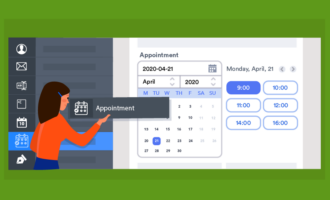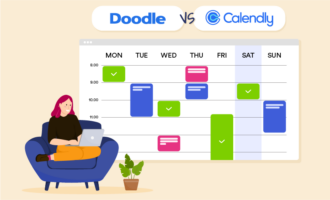What is free, but priceless? It can’t be owned, but can be used. And once it’s lost, you can never get it back.
The answer is time. Time is the most valuable thing we have, and unfortunately, it is a finite resource. Of course, that doesn’t stop Silicon Valley from trying to disrupt it. They spend capital to create more efficiency, wake up at 5 AM, minimize decisions to streamline their days, and employ countless other strategies in an effort to win time back.
But, do they actually work?
I’m sorry to say, mostly no. Time management techniques work if you’re already good at time management. For the rest of us, they are more likely to add stress and another thing to our to-do list: the opposite of what they’re intended to do.
Besides, for more people today, entrepreneurs and employees alike, the source of the problem is not their time management skills. Americans work more than any other industrialized country. This got worse during the pandemic. Employees worked harder and took less time off. Maybe some of them could have benefited from Steve Jobs’ daily uniform, but ultimately, the data points to a problem that time hacks cannot solve.
Instead of hacking our schedules, we have to address the root of the problem: We have too much to do and too little time in which to do it.
First things first: Admit you have a problem.
Productivity is essential, both for your company and your brain. It feels good to cross things off your to-do list. But chasing that productivity comes with diminishing returns. Working more hours does not come with increased productivity, and the added stress can actually make you worse at soft skills like interpersonal communication. It can even degrade your judgement. For leaders whose primary function is managing teams and making critical decisions for a company, that is a huge problem.
In addition to the ironically-added inefficiencies of overwork, overwork is bad for your health. Risk of stroke rises 35% and risk of fatal heart disease by 17% for those who overwork compared to those who keep a more regular 40-hour work week.
“Sure,” you might be thinking. “But I’m a founder. This is part of the job. I would never expect my employees to work like this.”
Unfortunately, “Do as I say, not as I do” doesn’t really work here. Organizational culture starts at the top. The good news? By addressing the root problems for yourself, your employees will follow, improving not just your health, but the health of the organization.
Don’t make decisions. Operate on principles.
There’s a reason the people with the gray t-shirt wardrobe swear by it: it saves decision-making power for something more important. The problem with the hack, though, is that it’s only one less thing to think about. In order for these changes to make a meaningful difference in our lives, we need to stop thinking in order of individual decisions. Instead, we need to operate on a set of principles.
Principles allow you to live out your values without getting bogged down by choices. Defining your principles has a cascading effect, where that one decision makes a hundred others for you. For example, let’s say your colleague asks to move up a deadline. You want to be helpful and seen as a team player, but that would mean getting home after your kids are long asleep. Thinking through the tradeoffs of this decision could be anxiety-inducing in the moment. But, due to one of your principles being to be an engaged parent, the decision was made before your colleague pressed “send.” (Rest assured: setting that boundary likely was totally fine with your colleague anyway!)
Principles are immovable and non-negotiable, and you have to stick with them in order for them to work for you. It’s worth it. Principles allow you to live authentically without having to stress over every decision and serve as an emergency brake when you’re getting swept up in your work (we’ve all been there).
Add structure.
Another way to reduce decision-making is simply better planning. And by better planning, I don’t mean time management. I mean structuring your days in a way that gives you time to work without rushing, time to rest, and time to be creative.
Most people manage their calendars reactively, responding to the calendar requests of the company and their team. While at face value this makes sense, it means that you don’t actually control your time. So, how do you change that?
You’re going to have to say “no” to stuff. To quote Oprah, “You can have it all. Just not all at once.” To determine what stays and what goes:
- Identify your lowest impact tasks. The most important part of your job is how you have the most impact. Ideally, that’s also how you’d spend the most time, but that’s rarely the case. Knowledge workers spend 41% of their time on work that could be competently done by other people with a less robust skillset. Identify your lowest value tasks and move them off your plate.
- Evaluate which tasks give you anxiety. Anxiety takes up an outsized portion of your cognitive load, which is detrimental to your productivity. It also causes you to focus on the wrong thing, often because you’re avoiding the task that’s making you anxious. If you can, delegate them. One person’s anxiety-inducing organizational task is another’s serotonin-boosting treasure. If you can’t, though, timebox it. Timeboxing will help you just do it and limit the impact anxiety can have on your day.
- Turn your to-do list into a calendar. In order to take control of your calendar, you need to translate your list of priorities into a calendar. Putting your tasks on a calendar gives you more control over your time and uses Parkinson’s law — i.e. that tasks will take as long as you have — to your advantage.
Of course, it’s hard to say no. We live in a “yes” culture. Furthermore, we want to be helpful and liked. But, saying “yes” all the time is to your personal detriment, and to your company’s. Declining obligations puts you back in the driver’s seat and makes room for a less stressful, more fulfilling life. In other words, saying “no” to less meaningful tasks means getting to say an enthusiastic “yes!” to the things that matter.








































Send Comment: